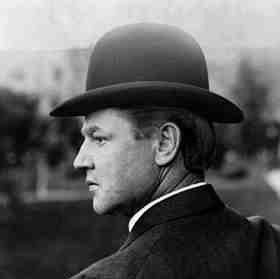FallenRaptor wrote:If it was possible to make revenue from selling the donuts, then new value was created by the vendor.
Not necessarily. Selling doesn't create new value according to the LTV. It's also completely possible to overprice products i.e. fool people, but that doesn't create new value either - it merely transfers already created value from one place to another.
If the buyer of the donuts does not pay the vendor the full value of the labor he performed selling the donuts to keep some of the money(surplus value), the buyer is exploiting the vendor.
I think that's a bit questionable conclusion. It happens all the time that some amount of a certain commodity is sold in a price over its value and the rest sold under the value, and all this to maximise profits.
foilist13 wrote:However the value would not have existed without the ingenuity, and it is possible to become a billionaire with only creativity and non-physical labor.
This is irrelevant. The LTV only states that human labour is what
creates new value in the production process, not that human labour is all that is
required for the production process. It's also completely posssible to make profit i.e. accumulate value without creating any new value.
This is where the value is created through creativity rather than labor.
You're confusing accumulation and creation.
tornadouk wrote:Where's the surplus value.
Nowhere. You're describing a pre-capitalist production process. Artisan labour doesn't create surplus-value, although it may be profitable.
So if an object contain's 1 hour's worth of social labour then it doesn't hold the same value as 1 hour of social labour?
I didn't say that. Among other commodities needed in production, the capitalist buys labour power from the commodity markets. Then the worker consumes that labour power through his own labour. This consumption of labour power adds more value to the product than what is the value of the consumed labour power. Human labour is always the source of new value, whether in a capitalist production process or in artisan production.
Marx accepts that the amount of social labour in a commodity can change, otherwise prices wouldn't fluctuate.
What do you mean by the "amount of social labour in a commodity"? I get the feeling you might have to correct your conception of 'socially necessary labour'.
foilist13 wrote:You could argue that the capitalist is putting more labor/social labor into the commodity when he does the work of market research, hiring/firing, and all the other things he must do in order to keep his business alive. That is hours of work invested in the product without actually making it.
Well this is all necessary but not what creates new value. You only need to do some maths to see this isn't how capitalism works. It's quite clear that if the richest capitalists in the world own more money than hundreds of millions of workers, these three individuals are not hundreds of millions times smarter than ordinary workers, nor are these three individuals working hundreds of millions times harder than the ordinary workers.
"These three individuals are 600,000,000 times richer because they exploit hundreds of thousands of workers."
http://www.geocities.com/cmkp_pk/Thought.htm

















 hah excellent point. However the value would not have existed without the ingenuity, and it is possible to become a billionaire with only creativity and non-physical labor.
hah excellent point. However the value would not have existed without the ingenuity, and it is possible to become a billionaire with only creativity and non-physical labor.

 - By Rich
- By Rich